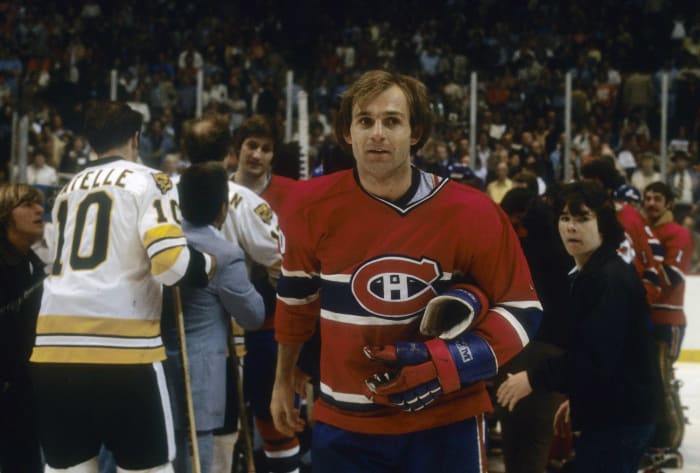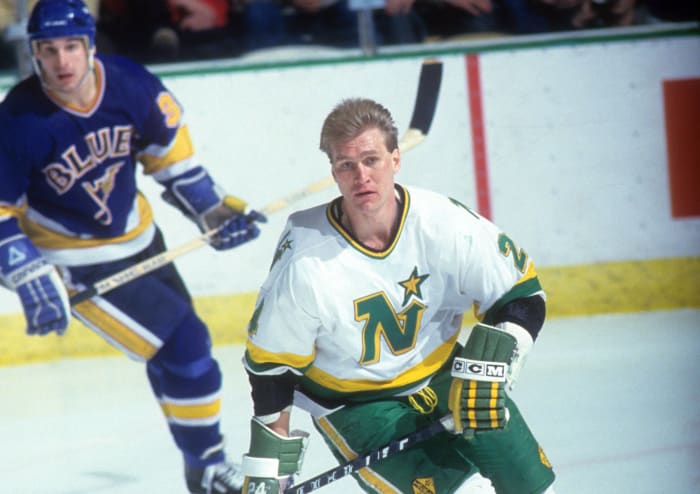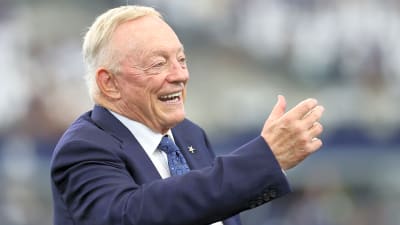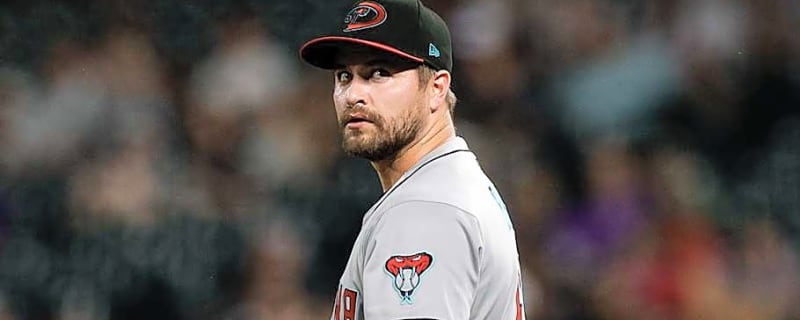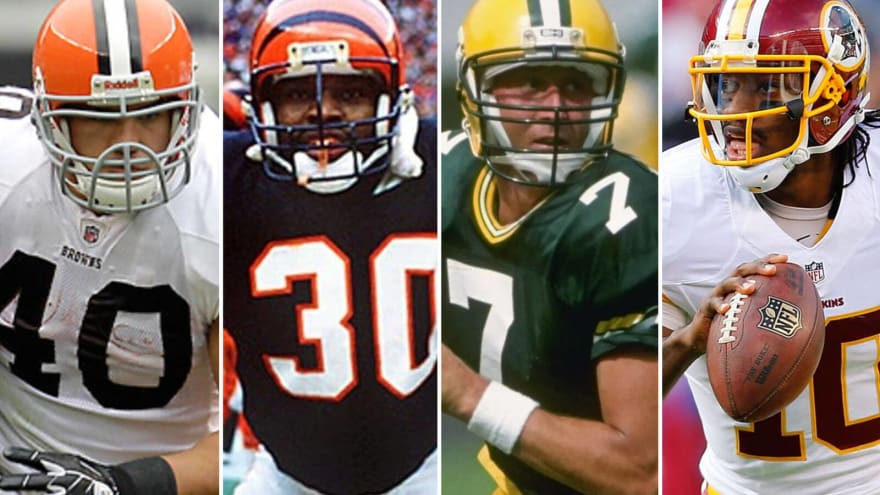
The biggest first-round upsets in Stanley Cup Playoff history
One of the best things about the Stanley Cup Playoffs is that anything can happen in a best-of-seven series. Regular season records, previous meetings, and whatever history might exist between two teams all gets thrown out the window when the NHL's second season begins. All it takes is one great goaltending performance or one hot streak or just a little bit of luck to completely alter history. Here, we look at 15 of the greatest and most stunning first round upsets in the history of the Stanley Cup Playoffs.
More must-reads:
- Five biggest surprises from first month of NHL season
- Five biggest disappointments from first month of NHL season
- The 'TDs from Josh Allen or Patrick Mahomes' quiz
Breaking News
Trending News
Customize Your Newsletter
 +
+
Get the latest news and rumors, customized to your favorite sports and teams. Emailed daily. Always free!
TODAY'S BEST

Insider Sees Ducks Making a Play for Rangers Superstar
The Anaheim Ducks may be an unexpected player in the Artemi Panarin sweepstakes, according to NHL insider Elliotte Friedman, who suggested on the latest 32 Thoughts podcast that Anaheim could be a potential fit if the star forward hits the market. Panarin, a pending unrestricted free agent, has yet to reach an agreement on a new contract with the New York Rangers, and Friedman noted that while the veteran winger prefers to stay in New York, there’s growing curiosity around what might happen if talks stall. “I was kind of wondering if a guy like Panarin might make some sense there,” Friedman said, referencing Ducks general manager Pat Verbeek, who has earned a reputation for taking “big swings” in his short tenure. The Ducks, currently built around a deep pool of young talent that includes Mason McTavish, Jackson LaCombe, Leo Carlsson, and Troy Terry, could see Panarin as the elite veteran piece to accelerate their transition from rebuild to contention. Friedman also pointed out the connection between Panarin and Joel Quenneville, who coached him during his breakout rookie season in Chicago. How much those two are still linked is anyone’s guess, but it could be a potential storyline to watch if Quenneville makes it known that he’s interested. Panarin to the Ducks Is Little More Than a Theory While a deal remains purely speculative, and Friedman wasn’t saying he’s heard rumblings of any trade or interest from either side, the idea of Anaheim pursuing a short-term, high-impact scorer like Panarin would be fascinating. It would signal a dramatic shift in their competitive timeline. First things first, the Rangers need to decide what they’re doing with their star forward. Once his future with the team is determined, only then could Verbeek even begin preparing to take one more “big swing” in Anaheim.

Maxx Crosby sends inspiring message after latest Raiders loss
The Las Vegas Raiders lost a tough game to the Jacksonville Jaguars on Sunday, but Pro Bowl pass-rusher Maxx Crosby is maintaining a positive attitude amid a difficult season. The Jaguars beat the Raiders 30-29 in a thrilling Week 9 overtime game at Allegiant Stadium in Las Vegas, Nev. The Raiders took the lead with just under 2 minutes remaining when star tight end Brock Bowers caught a 27-yard touchdown pass from Geno Smith. Jaguars quarterback Trevor Lawrence then led a field goal drive to force OT. The two teams traded touchdowns in OT, with Jacksonville getting the ball first and scoring. Rather than kicking an extra point to tie the game with 16 seconds left in the extra period, Raiders head coach Pete Carroll went for a two-point conversion and the win. Smith’s pass to Tyler Lockett fell incomplete, sealing the win for Jacksonville. After the game, Crosby shared an uplifting message for fans via social media. “Raider Nation I Love Yall With Everything In My Heart Soul. Yall Deserve Better. Stay As One, It Will Change,” Crosby wrote on X. The Raiders fell to 2-6 with the loss. Their first season under Carroll has been a disappointment thus far, but Crosby wants everyone to know he is not discouraged. Crosby signed a three-year, $106.5 million contract extension with the Raiders back in March. He is one of the best defensive players in the NFL and has 5 sacks in 8 games this season. There has been some talk of Crosby being traded ahead of the Nov. 4 deadline, but that is highly unlikely to happen. Crosby has reportedly told the team he does not want to go anywhere, and his message following Sunday’s loss is consistent with that.

Bears survey trade market after losing Dayo Odeyingbo for the year
It's likely to be costly but the Bears must pay the price now at defensive end with the season-ending loss of edge starter Dayo Odeyingbo to a torn Achilles. The free agent acquisition can look forward to a tough rehab from an injury that frequently takes up to a year to get past. Austin Booker will get to play most of the snaps at that position now. Without Odeyingbo and with Shemar Turner out for the year, they're without two edge but also Dominique Robinson has a high ankle sprain. "I thought Book played a nice game yesterday," coach Ben Johnson said. "I was very pleased to see that for his first game back. So no (not worried), I do have a lot of confidence there. Hopefully we’ll get Dom Robinson back too. He was doing some nice things there early in the season as well. We’ve got some depth. You can never have too many pass rusher. "You can never have too many cover players on the back end either. That’s how I have always felt since I’ve been in this league.” Actually, they don't have depth now, at least not proven edge players but he's right about the need always for players at that position. So the trade market beckons for GM Ryan Poles by Tuesday at 3 p.m. "I know Ryan and his crew have been doing their due diligence all throughout the fall, all the way up until tomorrow to make sure we’re turning over every stone to make sure if there’s a way that we can improve this roster, we’ll do that," Johnson said. "But I feel good about the guys we have on the roster currently." Trading now will be a case of biting the bullet and doing what they must. The attitude by Poles has always been to preserve his draft picks, but he didn't mind giving up a future fourth-round pick to draft Booker. So giving up as much as a second or third shouldn't hurt too much. "Those are always great questions. Ryan and I have a constant dialogue on players that might be available," Johnson said. "We talk nonstop about this and we've been doing it for a while now. He's doing, like I said, his due diligence to making sure that we look at everyone that could be available and that could help this football team in the here and the now, and also have in the back of our head what the ramifications of that also are (long term), the consequences when you give up capital, whether it's players or draft picks, what that does to your roster in the long-term. "It is a balancing act, but it's one that I think we have a really good process and a lot of communication on." The Bears missed on a chance for Jaelan Phillips, the Miami edge rusher. He was acquired in a trade by the Eagles from Miami earlier Monday. There had been reports the Bears had interest in him. It cost th Eagles a third-round pick. Because Odeyingbo was a more stout player who fit the Dennis Allen defensive scheme as a run stopper/edge rusher, it wouldn't be a surprise if they were looking for someone in the plus-260 range for weight. Booker isn't that type of player, and is only in his second year. He just became active Sunday after a knee injury in preseason landed him on IR. Booker had a strip-sack in the game. Pro Football Focus gave Booker the highest grade of any Bears player for pass rush on Sunday, an 85.8 for pass rush for 31 snaps. Gervon Dexter recovered the fumble caused by Booker on the sack of Joe Flacco and it led to a field goal. Booker has 2 1/2 career sacks and seven pressures according to Stathead/Pro Football Reference. Players actually on the trade market could include Cincinnati's Trey Hendrickson, Miami's Bradley Chubb, New Orleans' Carl Granderson and Cam Jordan. Both Granderson and Jordan played against the Bears last month and played a huge chunk of their careers for Bears defensive coordinator Dennis Allen. Speculation the Giants would trade Kayvon Thibodeaux appears unfounded. Dianna Russini reported the Giants have told teams they want a first-round pick in exchange. That would have been interesting for the Bears and especially the Giants since they play each other this week. Cleveland's Myles Garrett has repeatedly demanded a trade but the Browns are resistant to that. Besides, his salary would take the Bears far over the cap and would require cutting someone or restructuring several contracts if it's even possible. The Raiders have also said they are not trading Maxx Crosby, but their season is slipping away now after yet another tight loss and perhaps they would listen to requests. The problem the Bears have for trading at this point in the season and with few edges on their roster is 1) the competition and 2) their own desperation. Whoever has a qualified edge is going to demand the highest compensation in a trade for draft picks. The Lions, 49rs, Cowboys and several other teams could be seeking an edge besides the Bears. The Bears have $7.88 million available in cap space now according to Overthecap.com.

Buffalo Bills receive devastating news on injured rookie CB
Not the news Buffalo Bills fans wanted to hear. Head Coach Sean McDermott delivered a troubling update on Dorian Strong during a Tuesday afternoon press conference, pointing toward a long-term absence for the Bills’ rookie cornerback. The sixth-round pick has been dealing with a neck injury which led to his placement on Injured Reserve on Oct. 4, and entering Week 10, McDermott says that Strong has not received an encouraging update regarding his ailment. “I do have some more clarity, it’s not good in terms of the reports and everything,” said McDermott. “I don’t want to get into where it may go. It’s not moving in the direction we would like it to at this point. I’ll stop there just out of respect for Dorian.” Strong was selected by the Bills with the 177th overall pick in the sixth round of the 2025 NFL Draft and went on to earn the start in the first game of his NFL career in Week 1 against the Baltimore Ravens in place of injured veteran Tre’Davious White. Strong played in each of the Bills’ first four games of the season, but was injured before Buffalo’s Week 5 matchup against the New England Patriots and it now appears he has been lost for the year. The next question is, will this injury impact his career? Neck injuries are tricky and often dealt with conservatively. “He and I have had some conversations over the last few days and I wish the reports were better at this point,” added McDermott. Strong recorded 10 tackles during four games in his first professional season. — Sign up for OnSI’s Free Buffalo Bills Newsletter —
